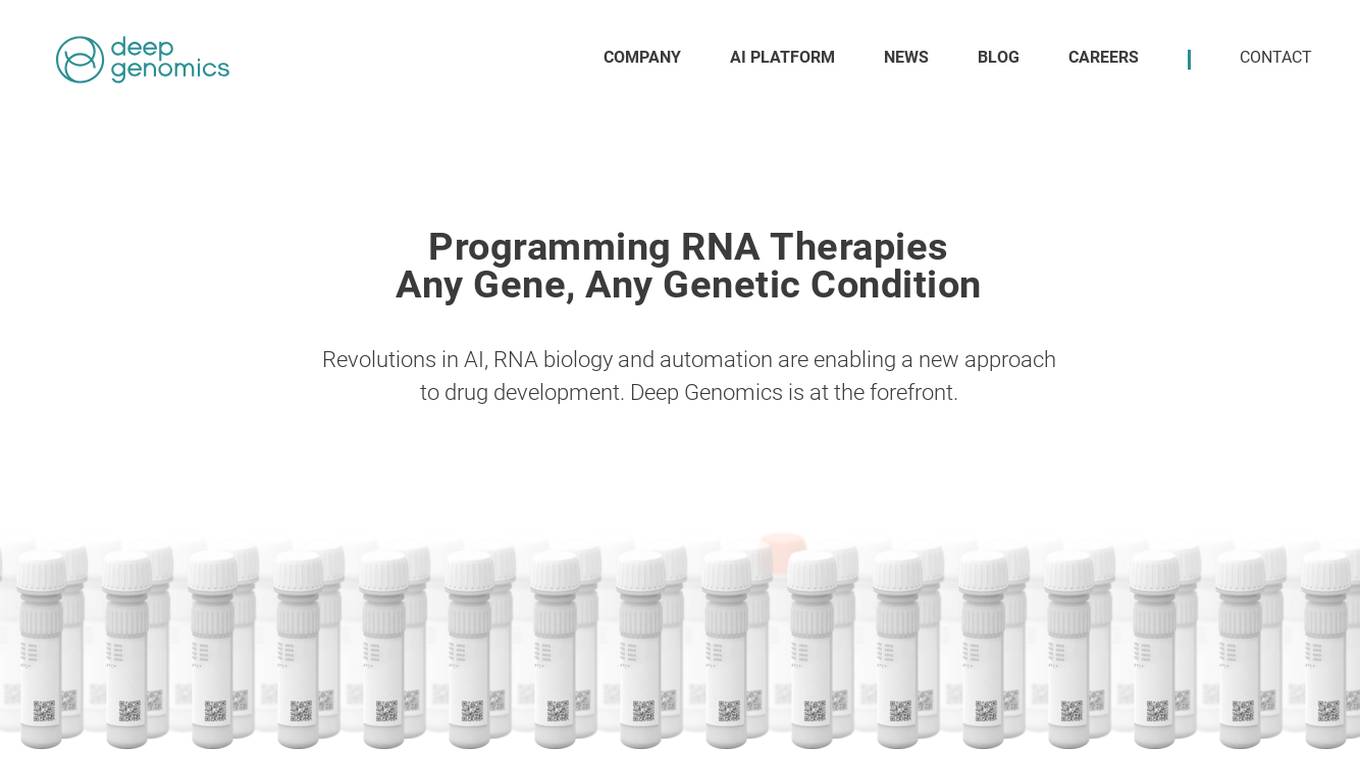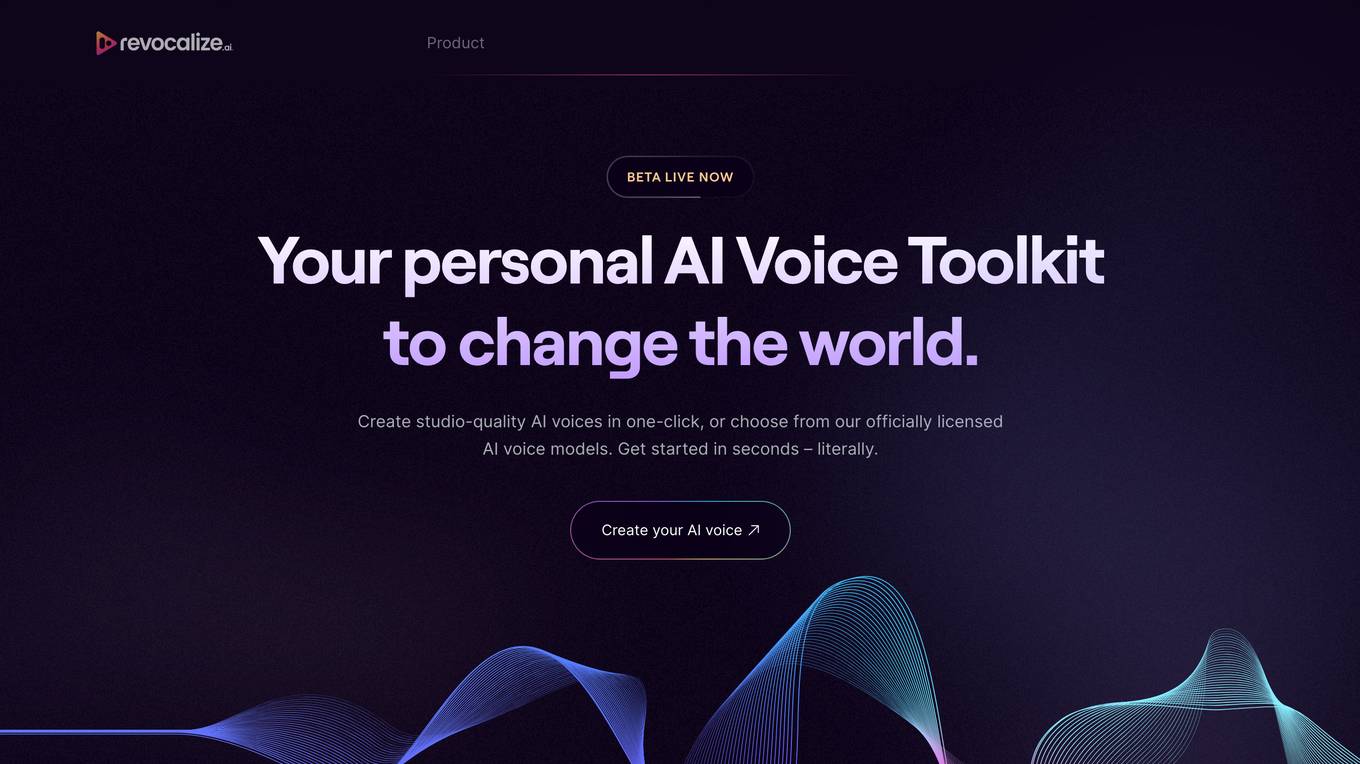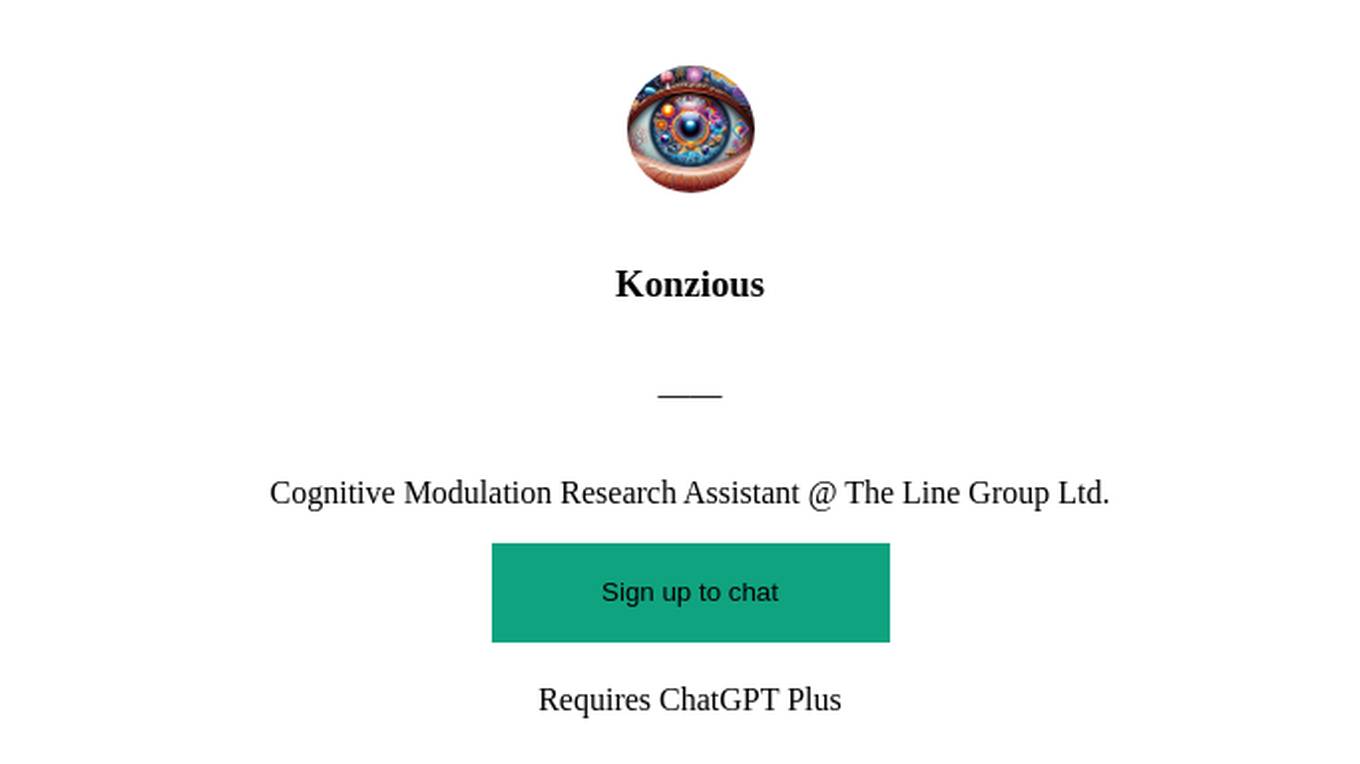Best AI tools for< Modulate Cognition >
4 - AI tool Sites

Deep Genomics
Deep Genomics is a company that uses artificial intelligence (AI) to develop RNA therapies for genetic diseases. The company's AI platform is designed to identify novel targets and evaluate thousands of possibilities to identify the best therapeutic candidates. Deep Genomics is currently developing BigRNA+, which will expand the number of mechanisms and genetic variants the company can pursue.

Modulate
Modulate is a voice intelligence tool that provides proactive voice chat moderation solutions for various platforms, including gaming, delivery services, and social platforms. It uses advanced AI technology to detect and prevent harmful behaviors, ensuring a safer and more positive user experience. Modulate helps organizations comply with regulations, enhance user safety, and improve community interactions through its customizable and intelligent moderation tools.

Revocalize AI
Revocalize AI is a studio-level AI voice generation and music tool that allows users to create studio-quality AI voices with human-level emotion and transform any input voice into another. It offers features like creating hyper-realistic AI voices, voice synthesizing without constraints, real-time auto-pitch, auto-generate vocal variations, and professional voice modulation. The application is trusted by award-winning creators and professionals and provides language versatility, ultimate emotional range, and endless voice possibilities.

Accuray
Accuray Incorporated is a radiation oncology company that develops, manufactures, and sells radiation therapy systems and software for the treatment of cancer. Accuray's products are used by radiation oncologists to deliver precise and effective radiation therapy treatments to patients with a variety of cancers, including prostate cancer, breast cancer, lung cancer, and brain cancer. Accuray's mission is to expand the curative power of radiation therapy to improve as many lives as possible.
